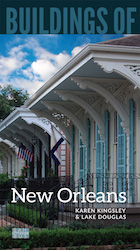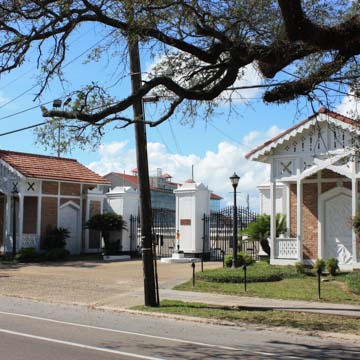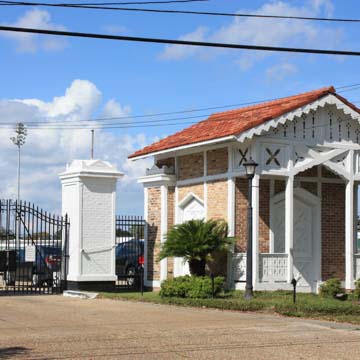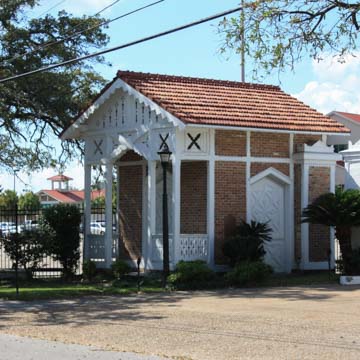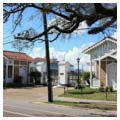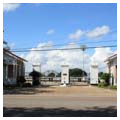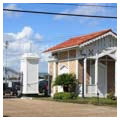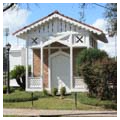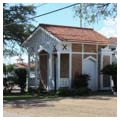Laid out in 1852, this racetrack was known as the Union Race Course until the City of New Orleans renamed it the Creole Race Course and built these gates, resembling little cottages. Each gate has a Carpenter Gothic front porch, the upper section covered by panels with trefoil and quatrefoil cutouts; the gable roof has serrated-edged bargeboards. The New Orleans Fair Grounds purchased the track in 1872. Rathbone DeBuys’s clubhouse and grandstand of 1919, destroyed by fire in 1993, was replaced by a similar design in 1997 by Eskew Filson Architects. Horse races are held at the fairgrounds during the winter months, and the annual New Orleans Jazz and Heritage Festival takes place here in late April.
You are here
Fair Grounds Entrance Gates
If SAH Archipedia has been useful to you, please consider supporting it.
SAH Archipedia tells the story of the United States through its buildings, landscapes, and cities. This freely available resource empowers the public with authoritative knowledge that deepens their understanding and appreciation of the built environment. But the Society of Architectural Historians, which created SAH Archipedia with University of Virginia Press, needs your support to maintain the high-caliber research, writing, photography, cartography, editing, design, and programming that make SAH Archipedia a trusted online resource available to all who value the history of place, heritage tourism, and learning.




















